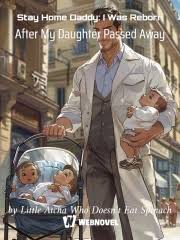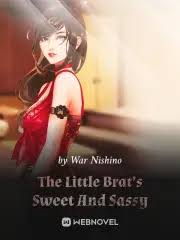The Story in 3 Sentences
After his wife Ji Pianran abandons the family and his daughter Tangtang dies from depression-related malnutrition, Gu Chen collapses into despair and slips into a coma.
He awakens reborn sixteen years in the past, face to face with his two-year-old daughter calling him “Daddy” with a sweet smile and innocent voice.
Determined to rewrite fate, he resolves to become a devoted stay-at-home father, protect his daughter’s well-being, and win back his wife’s trust before tragedy strikes again.
Why It Stands Out
1. A Redemption Arc Rooted in Quiet Domesticity
Unlike typical urban reincarnation tales fixated on wealth or power, this story centers on emotional repair through daily acts of care—cooking meals, attending school events, and simply being present. The rebirth isn’t a cheat code for domination but a second chance to listen, nurture, and heal.
2. Depression Treated with Uncommon Gravity
The novel confronts the daughter’s mental health not as a plot device but as a consequence of parental neglect. Readers note that her decline stems from emotional starvation as much as physical—anorexia and isolation born from a father’s absence—making the stakes painfully human rather than melodramatic.
3. The Wife Isn’t a Trophy to Be Won Back
Ji Pianran’s departure is framed not as betrayal but survival. Fan analyses highlight that she fled an abusive, gambling-addicted husband who left her and their child to starve. The story subtly challenges the “forgiving wife” trope by forcing Gu Chen to earn redemption through consistent change, not grand gestures.
Characters That Leave a Mark
There’s Ji Pianran – the wife who walked away not out of cruelty but desperation, having endured years of neglect and financial ruin at the hands of a husband lost to addiction, and whose return hinges on seeing genuine transformation, not just remorse.
You’ll meet Tangtang, who embodies both fragility and resilience; in her first life, she withers under loneliness and malnutrition, yet in the reborn timeline, her laughter becomes the compass guiding her father’s every choice.
And Baldy? They’re the one who serves as Gu Chen’s grounded confidant—offering blunt advice, comic relief, and occasional skepticism that keeps the protagonist from slipping into self-congratulatory saviorism.
The Flaws Fans Debate
The translation is riddled with errors: character names shift arbitrarily (Gu Chen becomes “Granny Zhang,” Tangtang is called ten different names), genders are swapped, and chapter order breaks down past chapter 500, with repeats and missing segments.
Despite its emotional core, the story drifts into generic tycoon tropes—business rivalries, sudden wealth, and underused “system” mechanics—diluting the intimate family drama that made the early chapters compelling.
Many readers feel the wife’s forgiveness comes too easily given the severity of the MC’s past abuse, undermining the realistic trauma the narrative initially establishes.
Must-Experience Arcs
Ch. 1–30: The Death That Rewinds Time – Gu Chen’s world collapses as his daughter dies in hospital, uttering a heartbreaking farewell; his coma and rebirth to her toddler years set the emotional foundation with raw vulnerability.
Ch. 200–250: Cooking with Mom – A rare arc where Ji Pianran tentatively re-enters their lives; domestic scenes of shared meals and school pickups reveal the slow, awkward rebuilding of trust, free from melodrama.
Ch. 990–1005: Grand Finale of One Thousand – The story closes not with a corporate takeover but a quiet family dinner, affirming that true success lies in presence, not profit, as Tangtang thrives and Ji Pianran finally smiles without fear.
Killer Quotes
“Dad, I don’t blame you, and I never blamed Mom. If I have another life, I still want to be your child, but please, don’t leave me again.”
“Everything in this world can be sold, but a child’s trust, once broken, costs more than money to rebuild.”
“Being a father isn’t about providing a roof—it’s about being the light under it.”
Cultural Impact
The novel sparked widespread discussion on Webnovel forums about responsible portrayals of depression in fiction, with readers praising its avoidance of romanticizing suicide.
Memes circulated mocking the chaotic name-swapping—“Is today’s MC Gu Chen, Ji Chen, or Granny Zhang?”—becoming a running joke in urban reincarnation fan circles.
Despite its 3.07 rating, it amassed over 1.4 million views, reflecting strong reader investment in its emotional premise even amid technical flaws.
Final Verdict
Start Here If You Want:
A tear-jerking second-chance story that prioritizes emotional honesty over power fantasies.
A rare urban reincarnation focused on parenting, not profiteering.
A narrative that treats mental health as a family wound, not a solo tragedy.
Study If You Love:
Explorations of toxic masculinity and its reversal through caregiving.
Stories where redemption is earned through consistency, not coincidence.
Domestic realism woven into speculative frameworks like rebirth.
Avoid If You Prefer:
Tightly edited, professionally translated prose without continuity errors.
Plots that avoid veering into generic business-war subplots.
Clear character identities—this novel’s naming chaos can be genuinely disorienting.





